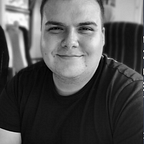Why stability must be your goal
This is shared from Candle’s website — you can view the original here.
Helping humans brings stability.
Stability — 1 : the quality, state, or degree of being stable: such as. a : the strength to stand or endure : firmness. b : the property of a body that causes it when disturbed from a condition of equilibrium or steady motion to develop forces or moments that restore the original condition.
“Stability.” Merriam-Webster.com Dictionary, Merriam-Webster, https://www.merriam-webster.com/dictionary/stability
This is a good definition. Stability isn’t being immovable, it’s being able to bounce back quickly.
Take any modern city structure, exposed to winds and earthquake — the structure isn’t designed to push against powerful shifts, it’s designed to lean into them, to ride them and when appropriate, settle back into its regular form
For an organisation, what does stability look like? What does it feel like?
Companies and organisations are layered networks. Networks of nodes that work together to create value. Nodes most often are people, with goals and values, and policies and procedures to make the realisation of their collective vision a possibility.
When we understand this definition, we understand what stability means.
Stability is culture. Stability is also a metric.
Stability is the extent to which a network deviates from its path and does not snap. Instead, bounce back, realign and go again, quickly. Gaining wisdom that levels up the utility of each node in the network.
The feeling of a stable organisation is the opposite of how rigidity, bureaucracy, elitism and poor communication feels.
Those things will feel different to each of us — so it’s better to call them out early.
How does Candle bring stability?
People are brilliant. People are complex. People are passionate, reliable, understanding and increasingly aware of each other.
People sometimes struggle. It’s not always apparent that we are to others. It’s not always apparent to ourselves either.
Pioneering studies show that presenteeism — the act of being in work, at the office or on zoom but not being present…not being 100% due to an unresolved mental, physical or emotional issue accounts for over £45bn lost each year from UK businesses.
In some industries, that can go as high as £3,300 per human each year.
This presents an unstable working environment. An unstable culture. An unstable network.
It’s unstable because the ability to course-correct, the ability to help and support isn’t optimal. This causes unnecessary costs, time lost and avoidable human suffering.
Nobody wants this.
So, we have to think differently about the lived experience someone has when they need help and support. At the micro-level, in the day today.
The issues we are talking about will never be solved in a vacuum. They’ve never been solved through loneliness and gritted teeth.
They are only remedied, improved, solved and overcome through people connecting with each other. Through sharing, supporting and growing together. Through a better network.
Through greater stability. Through greater ease toward strong connections between the nodes of the network. By replacing awkwardness and self-consciousness with a digital landscape of openness and empathy.
By giving autonomy, privacy and power to the tap of a screen. By turning an abyss of doubt into a river of love and hope.
That’s the stability Candle brings to our partners. So that you can bounce back faster, together and achieve the collective potential of each human, value, culture and process. Each being a true net multiplier to the next.
